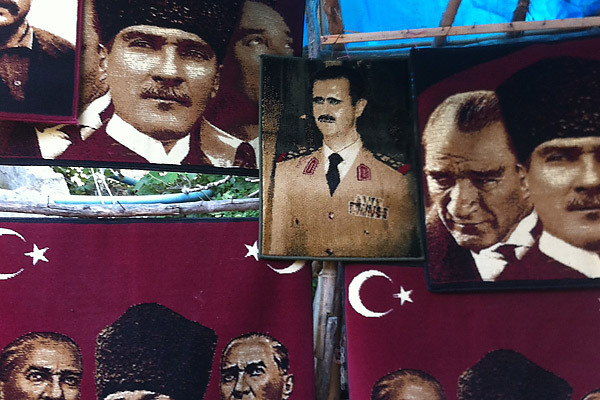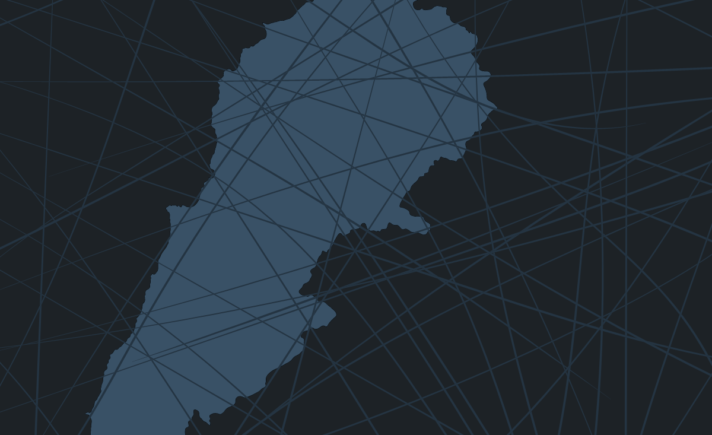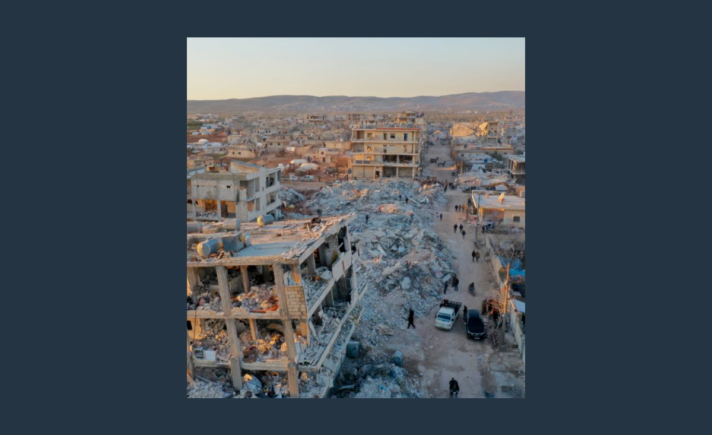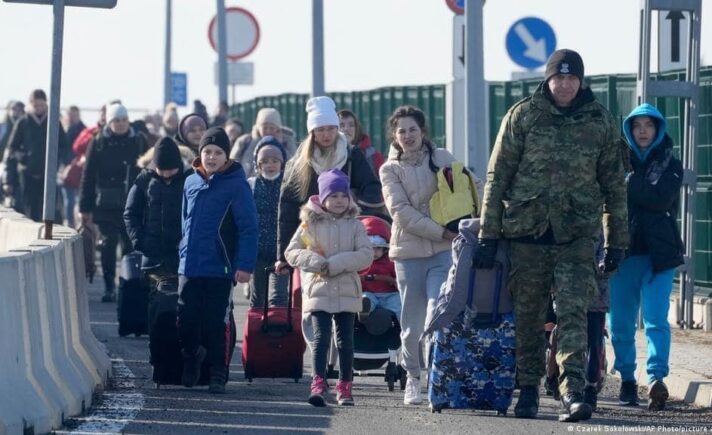On 23 June, 2019, shortly after the victory of the opposition candidate Ekrem İmamoğlu in Istanbul’s mayoral elections, the hashtag #SuriyelilerDefoluyor—literally translating to “Syrians f**k off”—began trending on Twitter. This marked the beginning of a period of further anti-Syrian hashtags trending on the social media platform in Turkey, and indeed a new phase in the Syrian tragedy. Turkey’s largest city is home to around 650,000 Syrians, most of them refugees arrived since 2011. Across Turkey as a whole, Syrians are estimated to number 3.5 million.
This author happens to be one of those 650,000 who escaped the war and wound up in Istanbul. As much as I’ve tried, I’ve been unable to ignore the recent escalation against Syrians here, which has made psychological strain—particularly insomnia, anxiety, and a re-experiencing of the Syrian trauma—part of my daily life. The mere sight of anti-Syrian hashtags trending is enough to make me stop functioning for a week.
But who am I? Who are we? What is the CHP party to which Mayor İmamoğlu belongs? And above all: what to do?
Who am I?
In some ways, I am unusual for a Syrian. I hail from the Syrian Turkish, or Türkmen, ethnic community; a remnant of the Turkish diaspora around the world since Ottoman times. When Mustafa Kemal Atatürk was making the modern Turkish Republic, he didn’t reach as far as the areas we lived in. Syrian Turks are highly integrated and blended into Syrian society, with no ethnic problems at all within Syria; in fact some golden-era Syrian presidents and politicians were of Turkish heritage. Syrian Turks perceive Anatolian Turks (those within the borders of the contemporary Turkish state) as their direct cousins; the community in which they can seek refuge in times of need. To this day, we share the same language, culture, origin, and religion. My grandmother, for example, cannot speak Arabic, knowing only Turkish. In truth, though, some among my young generation (second- or third-generation city dwellers) have lost their knowledge of the Turkish language.
I also come from a middle-class family of academicians; I myself have just finished my quaternary education. Politically, I subscribe to the center-left. I’m a staunch secularist, pro-democracy, anti-theocracy, anti-dictatorship, and anti-Assad. I participated in the Syrian revolution from its very beginning. I am peaceful, and rejected the armament of the revolutionaries, let alone the Islamist insurrectionaries. I was adamant on winning the revolution by means of civil activism. It was the values—if not necessarily the methods—of the French Revolution that were my model, inspiration, and obsession. Among the activities I was associated with in Syria was the publishing of a pro-democracy journal called “Hurriyet,” and I remember tears coming to my eyes when I learned by sheer coincidence that a left-leaning Turkish newspaper bore the same name.
After spending my teen years in revolutionary activism in Syria, which ended in people like me being shot at by both Islamists and Assad regime forces, I escaped the country to “my cousins” north of the border. This was temporary, I told myself; I’ll go back to my nice secularist middle class neighborhood in my nice Syrian city as soon as Assad is ousted.
I’ve been waiting for that day ever since.
Who are the Syrians in Turkey?
Most of them are people just like myself who have come here temporarily until Assad is removed. The choice of Turkey as opposed to other countries was based on various factors. Geographical proximity to the Turkish borders was one. Some conservative Syrians came to Turkey due to the reputation of its ruling conservative party, the AKP. Some were Türkmen. Others were secularists who thought Turkey the most “secularist” choice among the available countries of refuge. Some came because Turkey has a free economy that facilitates entrepreneurship; others because it is a hub for activism against Arab dictatorships. Those of more conservative leaning have likely taken refuge in the more conservative Arab states, while the more liberal opted for Europe instead.
What is the CHP?
The Cumhuriyet Halk Partisi, or Republican People’s Party, was established by the founder of the Turkish Republic, Mustafa Kemal Atatürk. It defines itself as a social-democratic, center-left, secularist, Kemalist party. It is a member of the Socialist International. Its slogan is “Humanity first, unity first, Turkey first.” It is considered the nearest of the Turkish parties to pro-Europeanism. Its electoral base mainly comprises the Westernized, urbanized, white collar middle class.
Yet, as so often in the Middle East, these “slogans” and affiliations are null and void in reality. Middle Easterners have learned well how to keep up appearances to fool Westerners (and sometimes themselves), while the serious stuff happens under the surface. This is true of no group more than the Middle Eastern left. The Westerners, for their part, fall for it every time.
Perhaps I am a Syrian with a sectarian minority complex (since the Syrian war was caused by a tyranny of the minority), but I can’t help seeing the CHP as associated with certain non-Sunni sects, and compassionate to the Assad regime for what appear to be—and I hope I’m wrong—sectarian reasons. At any rate, it’s clear the CHP is at odds with ordinary Syrian civilians both within Turkey and outside it. My complex is not that I hate the religious minority, because I’m true to my secularism, but that the minority is using secularism to attack the majority (i.e., Sunnis), which is consequently pushing the majority away from secularism, towards fanaticism and hardline attitudes. This incidentally may partially explain the AKP’s recent rightward shifts.
Support for refugees and opposition to xenophobia are supposed to be values historically prized by the left, including my fellow Syrians who welcomed millions of Iraqi and Lebanese refugees from war in times past. The CHP, on the other hand, has never even pretended to uphold these values. From the day Syrians began arriving in Turkey, the CHP mobilized against them, establishing itself early on as the key mouthpiece of anti-Syrian sentiments, rumors, and fake news. It was as if the CHP had become Assad’s official propaganda arm in Turkey. It promoted a cartoonish picture of Syrians as a homogenous group of backward, religious, ugly Arabs. It amplified the rumors that Syrians get financial support from the government, which is false; that Syrians can enter Turkish universities without exams, which is false; that Syrians get free housing and marital support, which is false; that Syrians are criminals, beggars, and rapists (the usual things), which is false; and on and on. The CHP has helped spread unsourced and Photoshopped images of ugly people smoking nargile (which is popular among Turks themselves) or resting on the beach alongside quotes such as, “These are Syrians in our country, while we go and fight for theirs.” These are all sheer, barefaced lies; rumors that Goebbels himself may have felt some shame spreading—or, alternatively, may have drawn inspiration from.
By August 2019, seeing this anti-Syrian hysteria gaining momentum, the other key anti-Syrian party entered the fray more forcefully. The right-wing nationalist İyi (“Good”) Party, which is an ally of the CHP and related figures such as Sinan Oğan and Ümit Özdağ, took up the banner of anti-Syrian propaganda in Turkey and became the main dynamo behind the more recent hashtags, clashes, and attacks against Syrians in the streets of Istanbul. It was İyi that pushed for the recent actions by the Turkish state to extradite and deport Syrians back to Syria; they must be very happy now that more than 1,000 Syrians have been detained by the police and dumped in north Syria’s Idlib—currently the most dangerous place on earth—many of them not even allowed to take luggage, many of them also completely unfamiliar with Idlib, having never seen it or known anybody from it before. They have simply been thrown to their fate; the lives of many families and the futures of many children destroyed in consequence. Incredibly, the “leftist” CHP either stood in silence or positively applauded the acts of its right-wing İyi ally. An important CHP segment even actively participated in this anti-Syrian campaign.
These people have unjustly and indiscriminately trashed the reputations of an extremely vulnerable group of people, mocking their tragedy in the most despicable of ways. The AKP too—supposedly the moderate party when it comes to dealing with Syrians—has fallen into the same habit recently, using anti-refugee sentiments as a populist vote-collection tool and scapegoat for its failures. The AKP-led government imposed the recent new restrictions and deportation policy against Syrians, mainly in response to the populist pressure from the İyi-CHP alliance. Heavy psychological distress now defines the day of a Syrian in Turkey. People like myself feel threatened and even fear scenarios of pogroms.
Today, mayors of small CHP towns with very negligible numbers of Syrians race to publicize that they will cut support to Syrians (whatever that means), change Syrian shops’ signboards, ban Syrians from entering beaches or other public places, and kick them out back to their country, which they claim is now “safe.”
Deconstructing the lies
Mayor İmamoğlu’s most recent campaign slogan was #HerSeyCokGuzelOlacak, or “#EverythingWillBeFine.” I couldn’t help recalling the French Revolutionary slogan Ça ira (“It’ll be fine”). Yet if only the Turkish version called for optimism, as its French counterpart did. In fairness, İmamoğlu has been relatively moderate so far, with only some slight anti-Syrian statements here and there. The fear we feel doesn’t derive from him directly, however, but rather his base that has gained power and momentum.
The ideological war within the Syrian opposition was brought along by Syrians to Turkey. Broadly speaking, it can be seen as a secularist camp against an Islamist one. Syrian conservatives, by virtue of being the earliest to arrive to Turkey, allied themselves with Turkish conservatives, while no comparable alliance between Syrian and Turkish secularists took place. The Syrian community in Turkey thus became dominated by conservatives, with little power in the hands of liberals and secularists. Communication with Turkey’s secularists (who then made up the bulk of Turkey’s anti-Syrian forces) was important, but the dominant Syrian Islamists didn’t allow for any organized direct contact. The little contact that did take place was at the individual level, especially among the youth, in places such as universities. All of my Turkish university friends vote CHP. I can’t forget their surprise when they learned I was Syrian, as if they had only then understood for the first time that Syrians could wear nice clothes and engage in complex secular talk. They had a certain mythical or stereotypical image of how a Syrian should look like. It took me two months of relationship-building to convince them I was really a friendly guy; that the rumors were false; that the few successful Syrians in universities were simply clever; that I paid my tuition fees entirely by myself, which sometimes brought me economic hardship; that Assad might actually be a bad guy; and that I wasn’t going to rape them.
Many Syrians have integrated within Turkish society. Indeed, a large proportion go unnoticed as Syrians, so Turkish do they appear. This is why no one talks about an integrated Syrian. Yes, there are integration problems among some Syrians, which can be seen in places like Istanbul’s Fatih neighborhood, where one can instantly perceive that the majority of shop signboards are written in Arabic, creating a scene of parallel society-ism and failed integration. However, large segments of Syrians, including myself, are against this, and in fact actively campaign for better integration. But, again, individuals like me go unnoticed! And Syrians as a collective already face a language barrier problem that prevents them from communicating with Turks and dispelling the rumors. The end result is that anti-Syrian propaganda spreads unchallenged.
What does this make me? Technically I’m a lefty secularist Turk who is afraid of the “leftist” secularist Turkish party. What a statement to make! What a world we’re living in!
The field of social psychology presents us with two major theories of conflict. The first is called realistic group conflict theory, which contends that two groups of people struggle with each other to acquire material (e.g., money) and non-material (e.g., power) resources. In reality, this doesn’t exist on a wide scale in the context under discussion, since Syrians have no money or power in Turkey, nor do they seek any. They know their stay is temporary, they establish small businesses just to sustain themselves until the war finishes, and that is it. Some are indeed competing with some Turks at the small business level, angering the latter due to competition, which might be a problem, but it is not the problem (i.e., a highly intense problem wherein all Turks are pitted against all Syrians). Therefore, what anti-Syrian Turks do is promote fake propaganda in order for such a conflict to arise; propaganda saying that Syrians are getting more money than Turks, that Syrians are being paid from Turks’ pockets, and so on. Social media is the primary channel promoting this; online trolls, bots, volunteers, paid employees, and organized mobbing groups take up the task of instilling a non-existent conflict between Turks and Syrians. In this regard, appealing to the consciousness, ethics, humanity, and feelings of shame (namus in Turkish) in those promoting such propaganda doesn’t work anymore, and is pure naivety. After eight years of war I recognize these ideals are dead. As such, I prefer more technical applications and fighting fire with fire. Organized groups should be active online, promoting true information and countering false claims. Unfortunately, Syrians alone have neither the money nor the institutions to do this.
The second theory is known as relative deprivation theory. It contends that a group feels frustration for a certain reason, and projects comparisons on some other group. The resultant conflict is fed by four factors: institutions (e.g., parties); coercive potential (e.g., executive power, armies, police); social facilitation (e.g., “ethically” justify hating the other group); and perceived legitimacy (e.g., legitimizing hating the other group, perceiving the presence of the other group as illegitimate).
This is the key issue on which Turks and Syrians really need to work. On both left and right, Syrians and Turks need to know each other more; they need to communicate. The more they communicate within an institutionalized framework, the better. Why not have, say, a center-leftist Syrian Türkmen attend CHP sessions as an audit? Turks also need to recognize that there is no Syrian army or Syrian police or any kind of Syrian power on their land. In fact it is the opposite; Turks can justly or unjustly purge Syrians without any local repercussions.
It is of the utmost importance to deconstruct the “ethical” justifications for attacking Syrians by showing how void the anti-Syrian arguments and rumors are. The Turkish left should be reminded that it is a defining value of the left to accept refugees! And not be xenophobic towards them.
Finally, Turks need to know that Syrians in Turkey are overwhelmingly subject to and compliant with Turkish law. They have their paperwork in order, they adhere to the law, and they are not criminals. The law is applied to Syrians no less than to Turks—and Syrians have no objection to this.
When I arrived to Turkey, I was a proud Turk (as well as a proud Syrian) coming to my cousins’ protection. I was excited to experience for the first time the feeling of living in a democracy and an open society. I prided myself on belonging to the only successfully secularized culture in the Sunni world, and I thought I could be Atatürk’s bridge to Syria. Instead, I felt disappointed, even betrayed. I found populism, identity politics, and pre-national affiliations dominating the scene. I found myself no more than a pawn in this inhumane game. In fact, I found myself in another war. Today I am a broken person who thinks the world is hopeless, and the left a disgrace to modern humanity.





